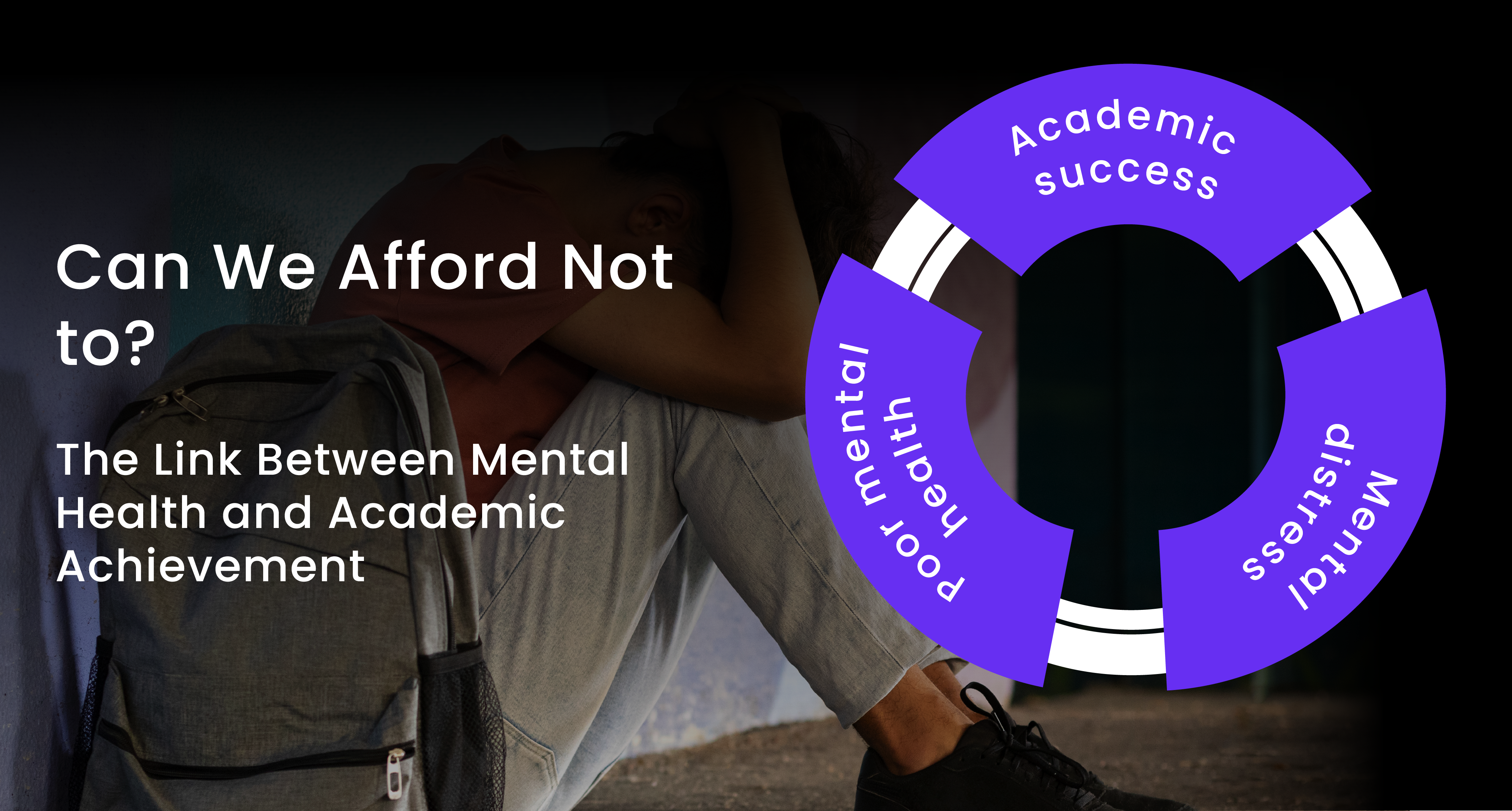Can We Afford Not to? The Link Between Mental Health and Academic Achievement
Addressing Mental Health: A Critical Investment
The mental health crisis in adolescents is becoming painfully clear, with the tragic rise in suicides and hospitalisations in young adults. With this backdrop, it might seem detached, or even cold-hearted, to shift our focus toward academic performance indicators such as grades and progression rates. But this is a vital part of the conversation that we cannot afford to overlook.
The same mental health issues that have led nearly every one of our prospects and clients to report losing a student to suicide or seeing multiple students hospitalised in the last term (with 75% reporting as many as five incidents, according to the AoC) are the very same factors that have a profoundly negative impact on student attainment.
How poor mental health impacts student attainment
These issues are deeply intertwined, two sides of the same coin, and their effects go far beyond individual suffering. Poor mental health leads to diminished academic performance, and academic struggles, in turn, further deteriorate mental health.
Research shows that not meeting academic requirements increases dramatically in students experiencing anxiety and depression. Moderate depression almost doubles the odds of academic failure, which can manifest as a lack of retention, progression, or degree completion.
Severe depression triples these risks. This means that mental health challenges directly impede educational attainment, which is crucial for long-term success and wellbeing.
Higher academic achievement—whether GCSEs, A-levels, or any kind of further education, is strongly associated with better career prospects, higher earnings, and improved health outcomes, all of which directly affect how young people navigate challenges like the current cost-of-living crisis.
Think about this: a 15-point rise in depressive symptoms, measured by the PHQ-9 scale, can lower a student’s academic standing. This drop can move them from the 50th percentile to the 37th or even the 23rd percentile. This isn’t just a matter of grades, it’s a pathway to diminished opportunities, employability, and lifelong prospects.
This creates a vicious circle. Young people struggling with mental health issues find it harder to succeed academically, exacerbating their mental health struggles and pulling them deeper into distress.
Optimism through effective treatment
Nonetheless, optimism remains. Research consistently shows that effective treatment for anxiety and depression has a direct, positive impact on academic performance. For example, treating major depressive disorder can reduce academic failure by 23%. This helps students progress in their education. It also makes them more employable and better prepared for future careers.
Fostering resilience and wellbeing is not only a key protective factor against mental illness, but it is also a cost-effective strategy for boosting academic attainment and reducing the devastating impact of mental health crises.
Jen Hope, the AoC Mental Health Lead, advocates for government funding to enable colleges to adopt a “whole-college approach” to mental health. This approach focuses on resilience-building, prevention, and early intervention, ensuring that services are sustainable and inclusive.
The Value of investing in student mental health
However, the question remains: Where can institutions find affordable and sustainable tools to foster resilience? One innovative solution is eQuoo, our evidence-based mental health app that has been clinically-proven to reduce depression and anxiety while increasing resilience significantly. With a large effect size comparable to widely used medications, eQuoo offers an affordable option with tangible results.
So, can colleges afford to miss out? The answer is simply, no. Investing in the mental health of students is an investment in their academic success, employability, and, ultimately, their futures.
My team and I frequently encounter budgetary challenges when promoting the adoption of eQuoo, but the real question isn’t whether colleges can afford to invest, but whether they can afford not to.
Join us for our upcoming webinar, where we will explore this topic further and evaluate the psychology behind eQuoo and how it is improving the mental wellbeing, attainment and employability of young adults across the UK. Register today!


